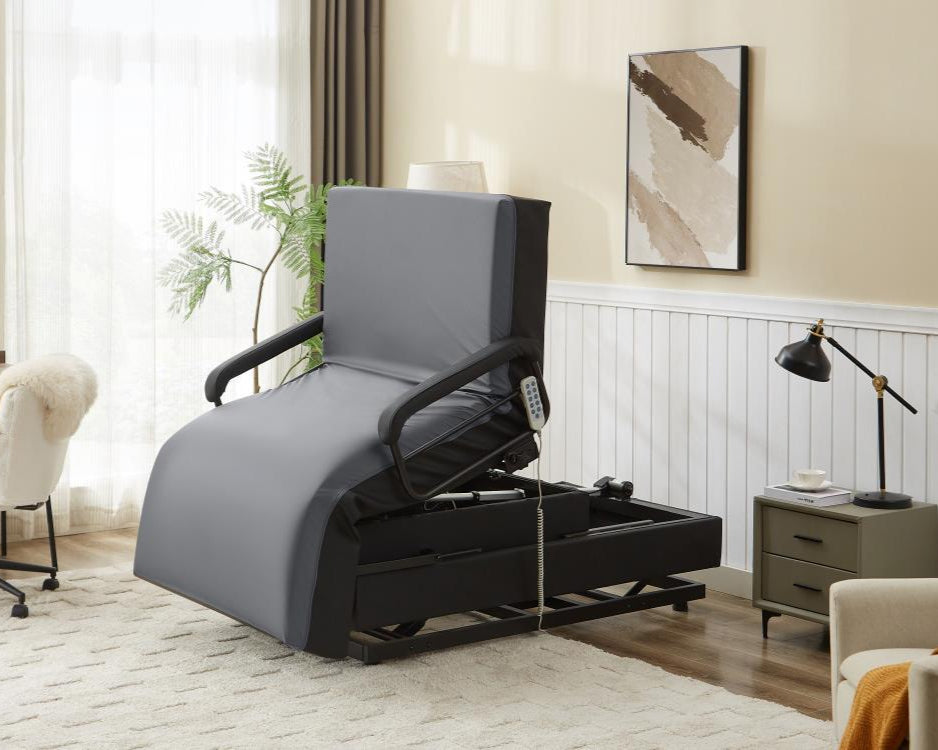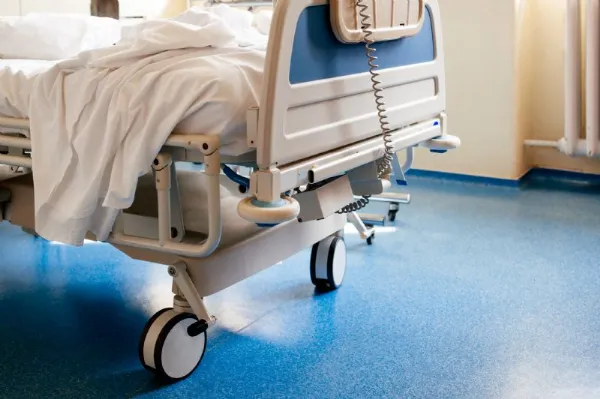The Greatest Guide To Hospital Beds For Home Use
Table of ContentsWhat Does Hospital Beds For Home Use Mean?Some Known Incorrect Statements About Hospital Beds For Home Use Rumored Buzz on Hospital Beds For Home UseThe Basic Principles Of Hospital Beds For Home Use All About Hospital Beds For Home Use8 Easy Facts About Hospital Beds For Home Use ShownSome Known Questions About Hospital Beds For Home Use.
There are 3 major kinds of medical facility beds: guidebook, semi-electric, and fully-electric. These beds use hand cranks to adjust the bed's height and raise and lower the head and the foot.
Semi-electric beds have an electrical motor to elevate and reduce the head and foot parts of the bed. Individuals and caregivers adjust the positioning by pushing switches utilizing a hand pendant. The height of the bed is readjusted by hand with a hand crank. Full-electric beds have an electric motor that can raise the head and foot sections of the bed along with the whole height and positioning of the bed.
5 Easy Facts About Hospital Beds For Home Use Shown
There are a number of kinds of hospital beds, each designed to fulfill specific individual demands. Here are some typical kinds: This is the most usual type of healthcare facility bed, made for general medical usage.
Reduced to the ground than a basic bed. This kind of bed is made for larger people, with a wider framework and greater weight ability than a standard bed. This sort of bed is created especially for children, with smaller sizes than a conventional bed. Unique attributes such as complete size side rails and anime design.
This kind of bed is designed for critically unwell clients who require open tracking and specialized medical equipment such as ventilators and infusion pumps. This kind of bed is developed for use during labor and delivery, with flexible placements and attributes to sustain the mom and infant during the birth process.
A Biased View of Hospital Beds For Home Use
Several function and the devices carry out expanding grip to different components of the vertebra and the extremities without moving the body. These are simply a few instances of the sorts of health center beds readily available. The particular sort of bed utilized will rely on the client's problem, medical needs, and various other elements.
Below is things you require to know. A one-function health center bed is a medical bed that permits a client to relocate only the head or foot area up or down. A 2 function healthcare facility bed typically describes a sort of medical bed that has 2 adjustable features to aid clients in hospitals or treatment centers.

9 Simple Techniques For Hospital Beds For Home Use
A 7-function ICU bed is a kind of medical bed that offers a number of flexible functions to support critically ill clients in an intensive care unit (ICU) (hospital beds for home use). The 7 features commonly consist of: Back-rest change: The backrest can be gotten used to different angles to assist the individual sit up or lie down comfortably
Elevation change: The bed can be elevated or reduced to make it much easier for clients to enter and out of bed, and for caretakers to give treatment. Trendelenburg setting: The entire bed can be slanted to advertise blood flow have a peek at these guys and circulation in the body. Reverse Trendelenburg placement: The bed can additionally be tilted in the opposite instructions to promote blood flow and blood circulation in the top body.
1. What Size is a Medical Facility Bed? 2. How Much Does a Hospital Bed Price? 3. Why Do Healthcare Facility Beds Have Side Rails? 4. What Are The Key Healthcare Facility Bed Parts?. While even more affordable than electrical models, these beds call for physical effort for adjustments. The major advantages of hand-operated beds are their cost and reliability, as they do not rely upon power. Nonetheless, the need for hand-operated initiative can be a limitation in scenarios where fast adjustments are essential or where caretakers encounter physical obstacles.
Little Known Questions About Hospital Beds For Home Use.
Semi-electric hospital beds offer a balance of manual and electrical controls. These beds give an ideal center ground in between handbook and completely electrical pop over here choices, offering ease of use without the complete cost of electric versions.
Semi-electric beds are appropriate for clients who require modest adjustments to the head and foot sections however can manage without frequent elevation changes. This makes them an economical service for those looking for comfort and ease without the need for constant repositioning. Completely electric healthcare facility beds include electrical controls for seamless changes to the height, head, and foot areas.
Specialized healthcare facility beds, such as ICU beds, long-lasting care beds, and bariatric beds, are thoroughly created to address details medical needs. These beds offer tailored treatment for varied patient groups, boosting both outcomes and convenience. In the adhering to sections, we click here for more info will certainly check out the primary sorts of specialty medical facility beds, outlining their details benefits and applications.
With years of experience in producing electric direct actuators - hospital beds for home use and close cooperation with the medical care industry, TiMOTION is well-positioned to provide reputable medical care solutions. Our up and down incorporated business manages every action of the manufacturing procedure, from design to actuator setting up, ensuring we deliver exceptional worth and personalized services customized to your details demands
A Biased View of Hospital Beds For Home Use

For more information concerning integrating these modern technologies right into your products, call us today. Further reading:.
Data is sourced from the Medicare Price Report.

Hospital Beds For Home Use Things To Know Before You Buy
A healthcare facility bed is a bed made particularly for clinical functions. It is not just an area for people to relax, but also a system for medical operations. Unlike average home beds, hospital beds normally have adjustable features, which can facilitate clinical staff to make numerous adjustments according to the demands of individuals, such as transforming the elevation, disposition, and support angle of the back and legs of the bed.